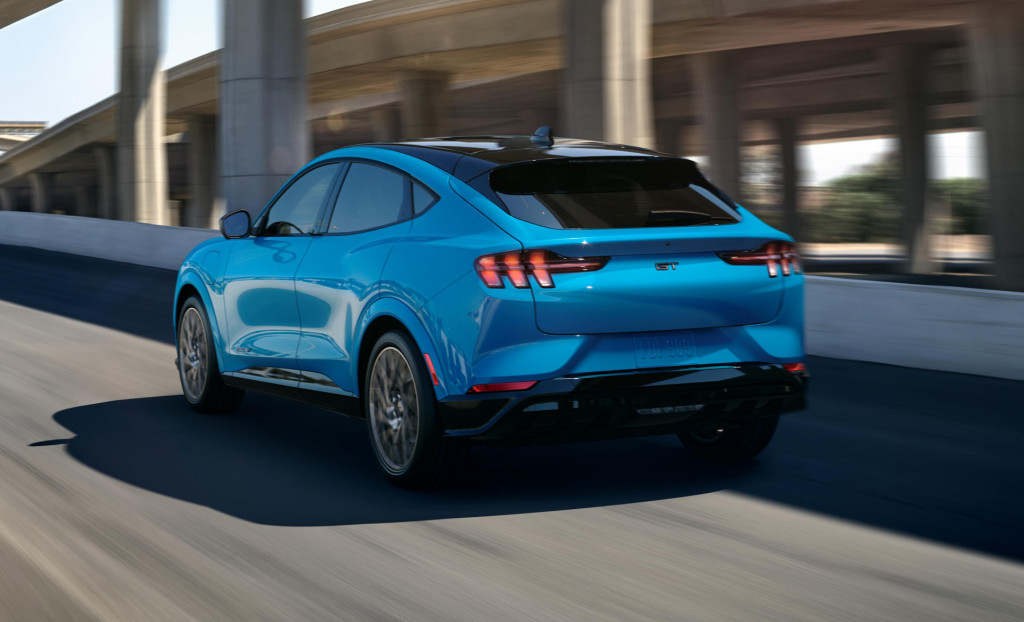Despite the global coronavirus pandemic, Ford is still aiming to launch its Mustang Mach-E electric SUV on schedule this fall, according to the Detroit News.
Some development work remains to be done on the Mach-E, which was unveiled in November 2019 at the Los Angeles Auto Show. That's been complicated by social distancing measures put in place to slow the spread of the virus.
So members of Ford's electric-vehicle development team—known as "Team Edison"—are working from home, using their own garages as temporary testing labs, and communicating via video chat, according to the Detroit News.
Team members took prototype vehicles home, and have remote access to most work tools needed for software development, the paper reported.
At this late stage of development, most changes involve software calibration, which can be easily done by flashing software tweaks to a prototype, then taking the car for a drive, Aleyna Kapur, a Mach-E caliber, said in an interview.
Team members previously switched vehicles regularly, using Ford-provided sanitization kits to disinfect door handles, steering wheels, and other parts of the vehicles. But that practice was ended due to to Michigan Governor Gretchen Whitmer's stay-at-home order, which went into effect in mid-March.

2021 Ford Mustang Mach-E First Edition
Instead of riding together in test vehicles, team members must now share photos and videos via Ford's cloud, according to the paper. Meetings take place through video chat and instant messaging.
Ford has a strong incentive to begin Mach-E deliveries on schedule. Citing reservation data, the automaker has said Mach-E demand goes well beyond the traditional EV stronghold of California, and that the SUV is wooing shoppers from other brands. Ford could build as many as 50,000 vehicles a year, which would make the Mach-E the bestselling non-Tesla electric SUV in the United States.
The automaker has also sided with California in a fight against the Trump administration, which seeks to strip the state of its right to set its own, higher, emissions standards and mandate electric cars.
The administration recently followed through on a threat to lower federal emissions standards, likely dealing a blow to electric-car adoption.












